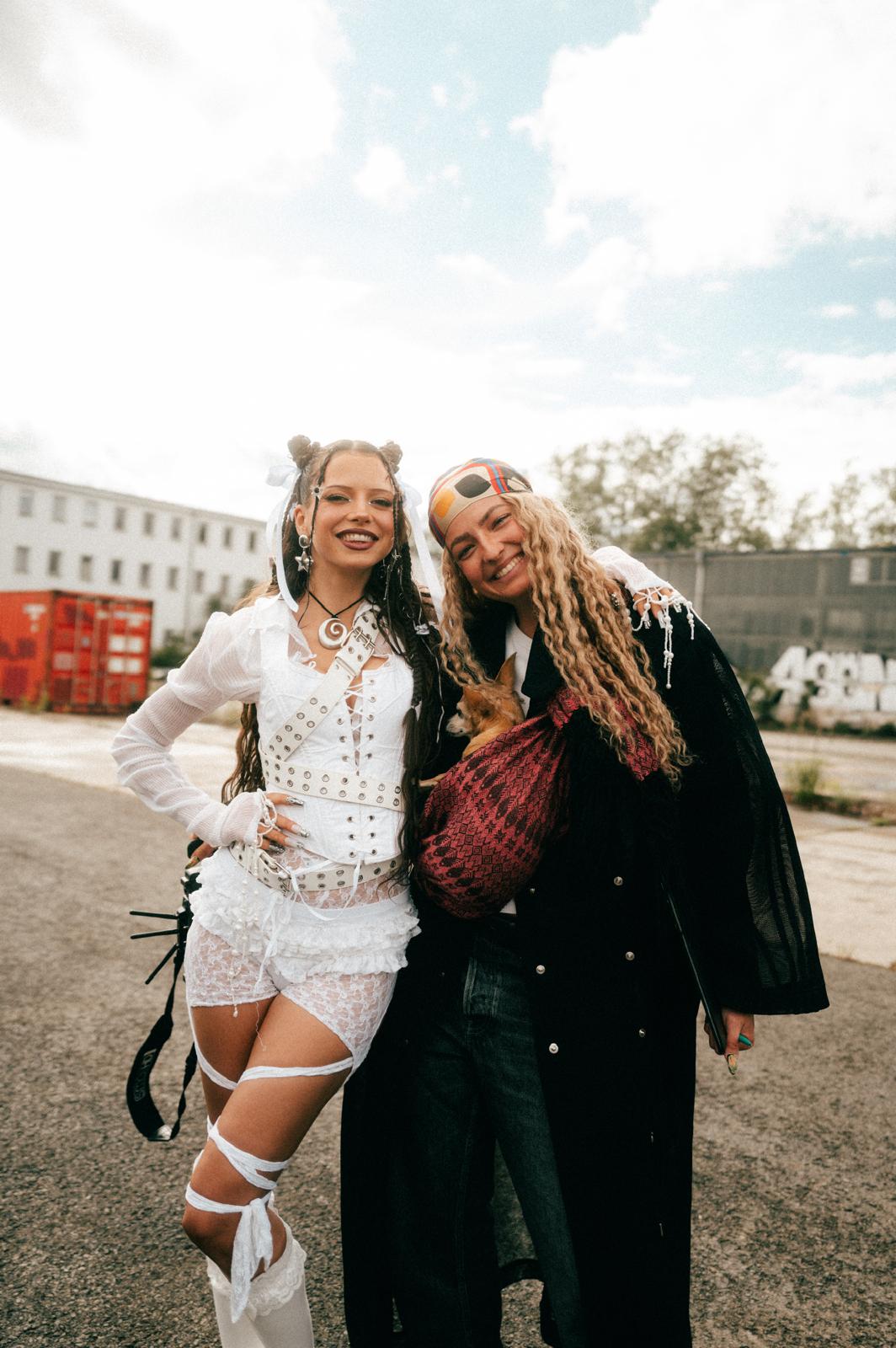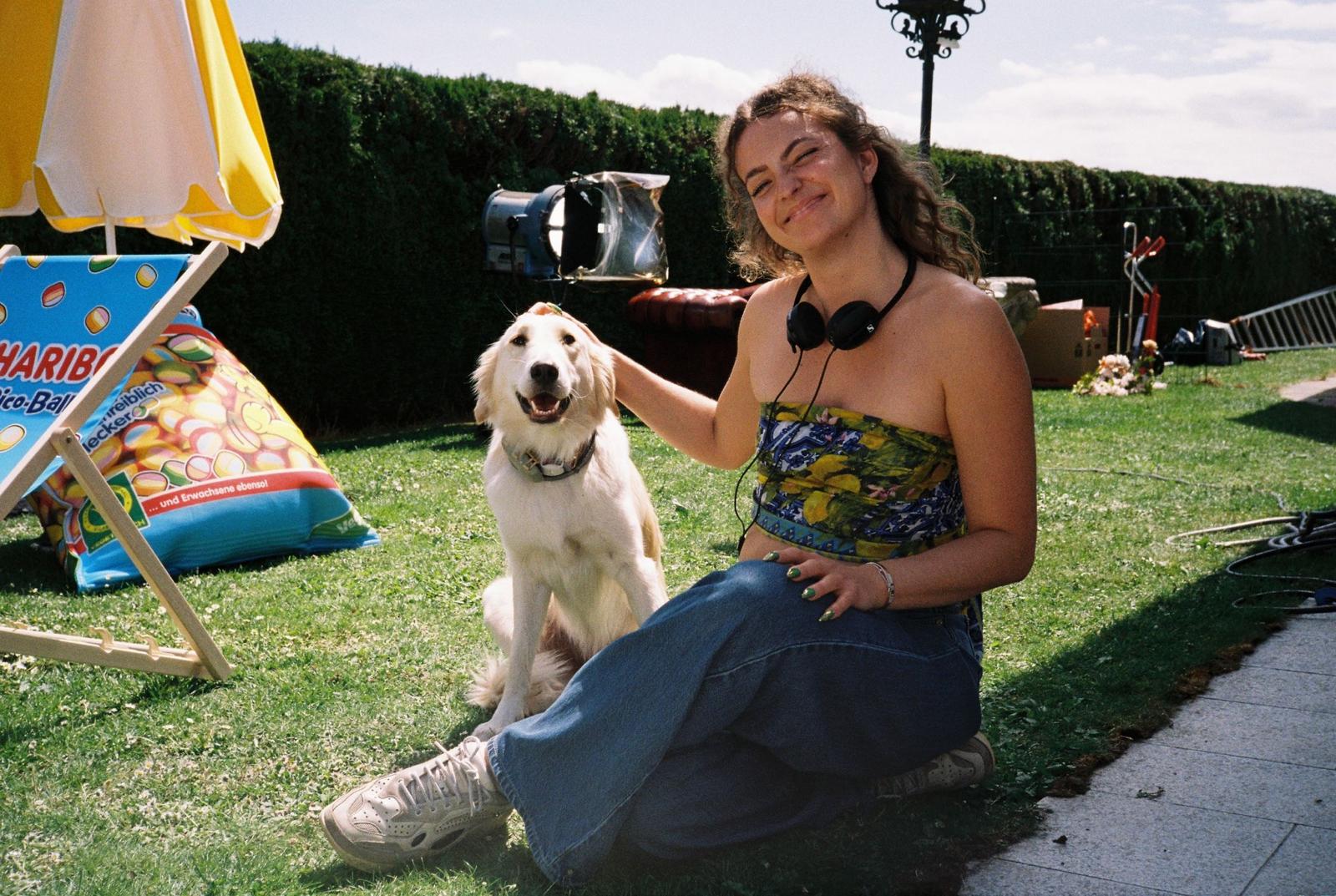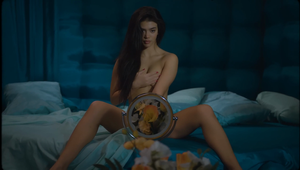
A Force Behind the Camera with German Director Tatjana Wenig

If you listen to German rap and pop music, chances are you’ve come across one of Tatjana Wenig’s music videos. She directed ‘Lächel Doch Mal’ by Shirin David, ‘Peppermint’ by Luciano, the Telekom ad with Badmomzjay, creative directed ‘On Off’ by Shirin David and Gims… the list goes on and on.
With her recent release of ‘Rage Girl’ by Nina Chuba, LBB’s Aysun Bora took the chance to talk to Tatjana, represented by The Sweetspot, about being a young leading female director in Germany’s music scene.
Tatjana joins the video call from a brightly lit location in Spain. The name that pops up in the bottom left corner is ‘Real Hot Girl.’ With a bright smile and an approachable demeanor, she begins speaking about her directing career and her perspective.
Tatjana is successful. Not only with widely watched pop and hip-hop videos, but also Germany-wide commercials, such as those featuring rapper Shirin David for McDonald's and Badmomzjay for Telekom.
Making it as a female director is not an easy fit. While there are no official statistics for gender dynamics in German music video production, recent data shows that only 26% of directors of European feature films are women. Tatjana works daily on increasing those numbers and helping women get behind the scenes with her creative collective, Female Force. “Getting more of us behind the camera means everything to me,” she says.
But let’s throw it back. No story is complete without the beginning, and hers starts with a big gamble.
How It All Began
A night out and a folder of ideas. That is what changed Tatjana’s life for good. The 20-year-old was working in television and not enjoying it much. On the side, she would listen to her favourite songs and write down music video concept ideas. Then, one day during a night out in Munich, she shared a cigarette with a music video director. She recalls, “I showed him my ideas and he was like ‘Let’s do something together then.’ And I just naively quit my job and went freelance at 20 years old.”
The young director took off from there and started networking with some of the biggest artists in Germany. At the beginning, she felt extreme impostor syndrome. “I didn’t sleep for three days before my first shoot as a director. It is getting better, though. I still worry, but now I sleep at least.”
With her unique style and female gaze, she begins to challenge the status quo. Quickly, she attracts the attention of German female artists who want to disrupt the music industry, the way she does. Now, she is the go-to director for many female artists, such as alternative pop star Nina Chuba. “She trusts me with my ideas and lets herself go. That means a lot to me,” Tatjana says.

The Big Break
Tatjana mastered riding the wave with the rise of German hip hop and music videos in 2018 and 2019. “It was a crazy time,” she says. “I was filming three to four videos a month.”
But even though she was on a roll, Tatjana didn’t know what her directing style looked like for the longest time. That uncertainty allowed her to experiment. The young director has always been obsessed with pop culture, fashion, and the influences of the 2000s. Those all found their way into her work. Now, she feels confident about her distinctive decadent street style. “Overall, the detailed sets and strong inclusion of pop culture are my thing.”
A Proud Moment – Women Who Don’t Smile
Directing ‘Lächel Doch Mal’ (loosely translated to ‘Smile More’) with Shirin David is one of the highlights of Tatjana’s career so far. The video not only has more than five million views but also addresses the abuse many women go through on a regular basis and flips the script by asking, “What if women behaved this way?”
The answer is a three-minute video with one of Germany’s most successful rappers, Shirin David. “I had worked with Shirin before, but when we came up with this idea, we just knew we had to create it together. It was a powerful message, and I am very proud of that one.”
The Female Gaze
Female representation was always important for Tatjana. But directing the ‘Peppermint’ music video for Luciano was a game-changer for her. “When I first got pitched the idea of showing a woman having an orgasm, I was terrified,” Tatjana says. “I mean, you know how those videos usually look. But then I thought about how to flip the switch.” The director created an all-female crew on set and had two goals: to show the scene through the female lens and to make the actress feel absolutely comfortable, so she could freely express herself.
“After that, I started my initiative, ‘Female Force.’ It is almost a philosophy for me to get as many women on my sets as possible.” However, disrupting the status quo also comes with struggle. “Film is still very hierarchical. If you don’t have a certain social background, it is really hard to make it. That is why I feel a social responsibility. I want everyone to have the chance to be on set, no matter what background they might be from.”
Even though there are obstacles in place, the director works hard to have as many women on set as possible. “No matter how many bell hooks’ books you read as a guy, there is a difference between having a woman behind the camera. There is a difference in point of view and lived experience.”
Changing Times
The wave Tatjana was riding has now mellowed down, making music videos has become a form of luxury, and the director is worried about the next generation of surfers. She says, “Videos are a marketing tool, and now a TikTok gets more attention and is cheaper. So, only people who can actually afford it make music videos now.”
Tatjana finds this trend “very alarming” and is concerned about the young generation of directors, especially those with diverse backgrounds, entering the industry. “Female directors are not being booked enough because it’s easier to bet on the safe horse and say ‘We will take the director who has worked in the industry for the last 50 years’ rather than take a chance on someone new. Truth is, a lot of people can’t get the experience because they come from different backgrounds and didn’t have that access growing up.”

Raising the next generation of directors
Tatjana wants people in the film and music industry to put their money where their mouth is. “We have to take chances on people, otherwise we won’t get anywhere. We have fought for those 26% really hard, and now we are taking steps back.” Storytelling in the form of music videos, campaigns, or films benefits from a wide range of cultural influences. “People with different backgrounds add value with their lived experiences. Otherwise, everything just becomes the same grey blob.”
Tatjana also wished that some brands would take a stronger stance, especially in the current political climate. “When you work in advertising, you have to accept some stuff anyway. That is part of the game. But we don’t have to accept everything, and we can have a moral compass and take a stance when it’s necessary.”
When asked about what her advice would be for a 13-year-old who wants to get into directing, she doesn’t think long. “If you know this is something that you would like to try out, give me a shout. The most important thing is knowing that you’re not alone. We are often made to believe that we are not good enough, or we doubt ourselves without even giving it a shot. But finding people who believe in you is key. So, if you like what I do, contact me.”















